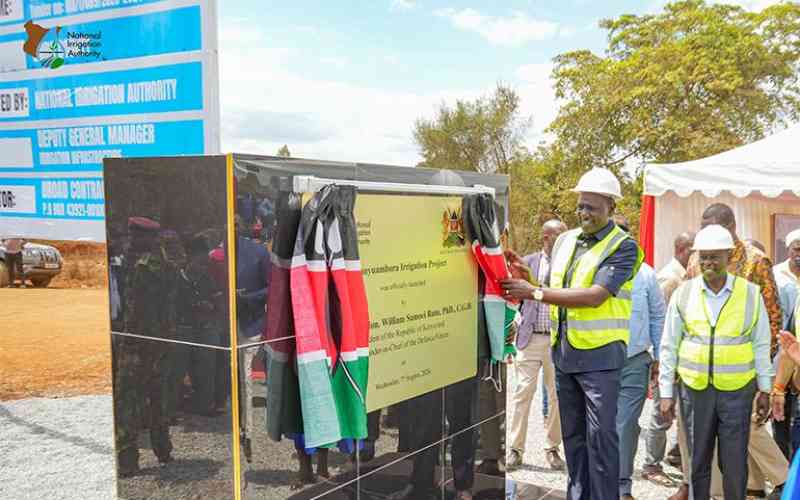×
The Standard e-Paper
Kenya’s Boldest Voice

President William Ruto unveiled the Iriari and Kanyuambora irrigation projects. [PCS]
Monday, September 2 represents 720 days since President William Ruto's inauguration as President and 755 days since the August 2022 general election. With another 1,072 days to go to the next election in August 2027, the good news is he still has 60 per cent of his term remaining to deliver the 200 Kenya Kwanza promises to Kenyans. Plenty of time left, right?